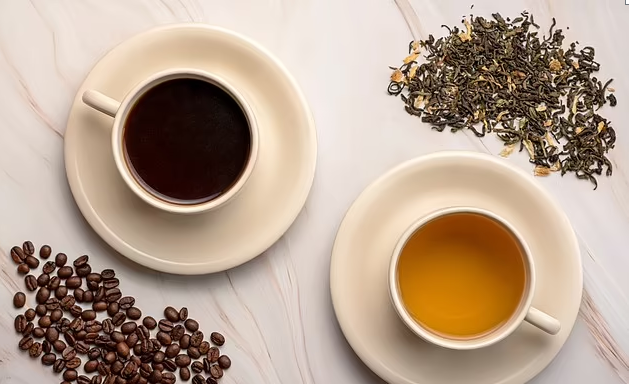
Which is better for your health, a coffee or tea?
Both claim to have a host of health benefits, including boosting energy, lowering inflammation, and reducing the risk of heart disease.
But when it comes to your risk of a heart attack or stroke, one appears to reign supreme.
An international study of more than 25,000 people found that drinking more than four cups of coffee per day increased the risk of stroke by nearly 40 percent.
Meanwhile, the same amount of tea slashed the risk by almost one-fifth.
The researchers suggested this could be because frequent coffee drinkers may be more likely to have issues heart issues like high blood pressure, which increase stroke risk.
In the study, published in July in the International Journal of Stroke, researchers recruited 26,950 adults from 32 countries, including the UK and Canada, about half of whom had survived a stroke in the past few days.
On average, patients were recruited about two and a half days after suffering a stroke.
Participants filled out questionnaires about their medical history, diet, physical activity, and other stroke risk factors like smoking and high blood pressure.
They were also asked how many cups per day they drank of coffee, Chinese/Japanese green tea, black tea, and other kinds of tea.
About one in five participants drank neither beverage, while nearly half stuck with tea alone. About 15 percent drank coffee on its own, while nearly one in five consumed both.
The team found that drinking four or more cups of coffee per day raised the risk of stroke by 37 percent. However, drinking the same amount of any kind of tea lowered the risk by 19 percent.
Black teas, which include Earl Grey and Breakfast teas, had the lowest overall risk of stroke at 29 percent, while green tea led to a 27 percent reduced risk.
There was no link between drinking three or fewer cups of coffee and stroke.
The researchers noted that excessive coffee drinking may have such a detrimental effect because those who downed this much coffee tended to have higher rates of issues like high blood pressure and high heart rate.
Coffee has higher levels of caffeine than tea, with about 80-100 milligrams per eight-ounce cup compared to 50 in tea.
Caffeine has been shown to promote the release of adrenaline, which increases heart rate and blood pressure.
Over a sustained period of time, these effects can damage blood vessels in the brain, increasing the risk of clots and strokes.
However, the researchers noted that adding milk to any type of tea negated all potential stroke-related benefits.
The team did not look at the impact of sugar, syrups, spices, or other add-ons to coffee or tea.
The team said this could be because milk blocks antioxidants, disease-fighting molecules found in both coffee and tea that have been shown reduce inflammation that could lead to a stroke.
There were several limitations to the study. The researchers noted that the findings could be subject to recall bias, as participants had a stroke just days before being interviewed.
Additionally, participants from China and South Asia made up the largest demographic. As tea is particularly popular in these areas, there could be potential bias.
Content by: Emily Joshu




